Music Makes the World Go Round
Prabhjit Singh and Raminder Kaur
Many baptised Sikhs (amritdhari) from India go abroad as contracted granthi (priests) and ragi (musicians-singers) to work in gurdwaras (Sikh places of worship) around the world. While there are a few people who have trained in the scriptures and music in Britain, they are not up to the accomplished standards of those from India being open to richer traditions learnt at historical gurdwaras and/or specialist training centres.
While granthi are taught for several years in institutions throughout Panjab, most of the ragi are self-taught: they have learnt along the way by performing with family members from an early age, listening to other ragi, and through instructions in classes held by dedicated individuals or organised by gurdwara committees as part of their remit to instruct the next generation of Sikhs. Some that come via this route excel to the point of being invited to perform at the Harmandir Sahib (Golden Temple), the supreme sanctum sanctorum for Sikhs.
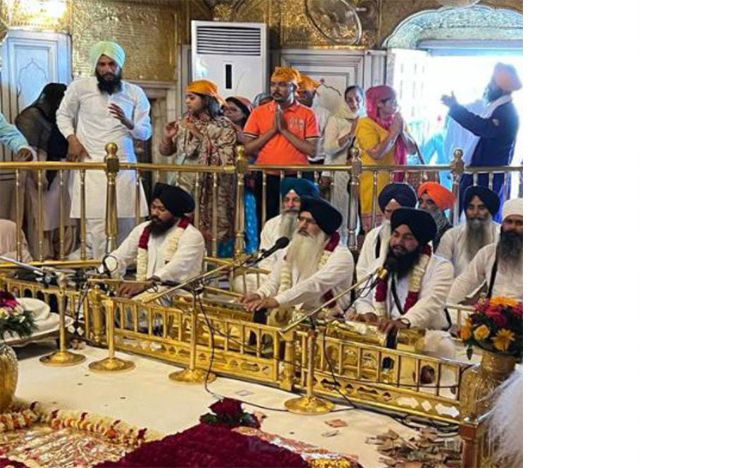
Figure 1: Ragi jatha performing in the Harmandir Sahib
To be invited here is not merely on the basis of merit - as one ragi elaborated:
‘You need the foundation of hard work in gaining musical skills. And you also need Guru Sahib de kirpa (God’s mercy) that automatically creates kismat (fate). On this basis, even if there are worthier people than you, you can register (hazri lani) at the Harmandir Sahib.’
Even though taken with great humility subject to the vagaries of God’s will or fate, performing in the Harmandir Sahib earns the lead in the group the supreme cachet of hazuri ragi. Once a person attains the honorary title of Hazuri Ragi Shri Darbar Sahib Amritsar - where Darbar Sahib is another term for Harmandir Sahib - he becomes the embodiment of the sweetest of all devotional music, kirtan. With this title, he also earns the passport to travel to any place in India and around the world as other gurdwara committees sponsor them to visit their place with his jatha – a group that usually includes two harmonium players, a tabla player and occasionally a player of a stringed instrument such as the rabab, tanpura, saranda, dilruba or taus. While some people may not be able to travel to the Harmandir Sahib due to other commitments, financial constraints, or debilitating ailments, the doyens of Harmandir Sahib can come to them. With them, comes the aura of the holy city of Amritsar.
Despite the Sikh principle of equality, women have not been allowed to perform kirtan in the Harmandir Sahib but may do so in surrounding locations – as amateurs or professionals. This is a moot point to this day. Despite the fact that the Punjab state minister, Tript Rajinder Singh Bajwa, decreed that women should be permitted as bibi ragi in 2019, the Shiromani Gurdwara Parbandhak Committee (SGPC) that regulate all gurdwaras in Panjab have been slow to act. However, there is one known record of women performing as part of a white jatha in the sanctum sanctorum from 1980 that has circulated on social media by a Sikh man from New Zealand.
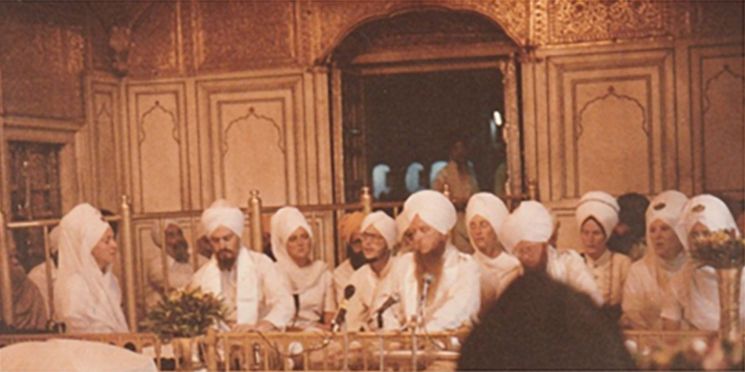
Figure 2: White jatha inside the Harmandir Sahib
In Britain, there is no place where a woman cannot perform as a ragi although the majority tend to be men. Once abroad, the Indian jatha can command large donations through their performances to diasporic communities. In British gurdwaras, people in the congregation get up and lay seva (donations) in front of them on the stage as the jatha perform – anything between a pound coin to notes – 5, 10, 20 or more depending upon the size of their heart and/or pockets. When one of the congregation gets up, the others follow.
However, monetary considerations are secondary to many hazuri ragi, if not all ragi. Occasionally, any cash collected is donated to the gurdwara itself for specific collections as with building a new structure, extension, or renovations. As an old story goes about parnala (roof gutter pipes) was retold to us:
‘During the time of Guru Gobind Singh Ji (the tenth guru) in the seventeenth century, it was decreed that salary (tankah) is the roof, the shelter. And the roof needs a gutter pipe to get rid of the water. If you don’t have that, then the strength of your roof will deplete – it will get damaged or fall altogether.’
Just as a roof cannot hoard water but needs to channel it away from itself, so money also needs to be channelled away from the recipient. Hazuri Ragi Shri Darbar Sahib Amritsar Bhai Harjinder Singh (Srinagar Wale) said, ‘Wherever I go, my pockets are full. This is all because of your love.’ As the receptacle of pyar – a word meaning both love, and love backed up by money – he gives the cash away as easily as it comes to him in an endless circuit of giving and receiving. There remain those ragi who may want to collect funds for their family as with preparations for the education or marriage of their children – a different destination but again a pursuit where money flows to, through and out of the ragi.
About a tenth of the ragi train in one of a few cultural and educational institutions in India. The most established are the Damdami Taksal, Shahid Sikh Missionary College, and Jawaddi Taksal based in Panjab with several branches throughout India. Those that graduate from here have certificated training in a range of musical theories and styles including Indian classical music. Of the recognised training centres for ragi, Shahid Sikh Missionary College is based in Amritsar and among the music schools (gurmat sangeet vidyalayas) and missionary colleges under the management of the Dharam Prachar Committee of the SGPC.
The Shahid Sikh Missionary College was established in memory of the martyrs in 1927 after the violence around Saka Nankana Sahib in 1921, when more than a hundred reformist Sikhs were massacred by followers of Mahant Narayan Das who was using the gurdwara and its 1,900 acres of land for personal profit and dubious deeds. The mission of the college was to enlarge the Sikh community (panth) through instructing children in Sikh sacred texts, philosophy, history and music. Since its establishment, the Shahid Sikh Missionary College has instructed thousands of young boys with a recent branch set up for girls. Of the graduates, one is Bhai Harjinder Singh, who used to perform with his father, and then went to the college for two years. He formed a jatha with his younger brother, Bhai Maninder Singh, and with Bhai Harnaam Singh, the latter who is also now a hazuri ragi.
Hazuri Ragi Shri Darbar Sahib Amritsar Bhai Harjinder Singh is renowned for mastery in the field with a very distinctive, melodious style of singing together with an engaging style of speaking with the sangat (congregation) - YouTube. His reputation has earnt him sponsorships to perform abroad including from Britain, Canada, Australia, New Zealand, and even China where resides a small Sikh community including those who are ethnically Chinese interested in the religion - YouTube.
Professor Rawail Singh (Amritsar Wale) is another graduate of the Shahid Sikh Missionary College. Due to his exceptional proficiency, he also became a teacher at the same college - YouTube. He was an SGPC member of staff and toured gurdwaras as a ragi in India. After performing at the Harmandir Sahib, he also conducted regular kirtan tours abroad. Even though he is now retired in his late sixties, he does occasional work for the SGPC due to his knowledge and teaching methods for those interested in learning raga kirtan – that is, kirtan based on classical music rather than popular melody. As SGPC staff do not receive a pension, he continues to teach kirtan to students from his home in Amritsar while also performing on special occasions and at prestigious classical music festivals.
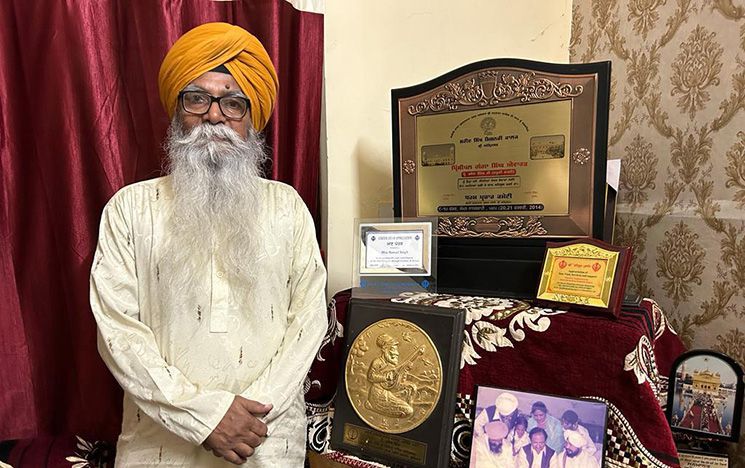
Figure 3: Professor Rawail Singh (Amritsar Wale)
Virtually all hazuri ragi have travelled abroad to perform in gurdwaras. They come with about a week of residency and performances in any one gurdwara as part of a tour of several in the country over a few months. Long established gurdwaras in Birmingham, Smethwick, and Southall in Greater London are virtually always on the itinerary. At any of these gurdwara, ragi would stay with minimal expenses while performing at set times to the sangat. Diasporic Panjabis in the committee tend to their travel, accommodation, and other essential needs on gurdwara premises. Granthi tend to come on longer-term contracts for residence in specific gurdwaras as they perform daily ceremonies and often teach kirtan to children and those others who may be interested. For smaller gurdwaras, they may also become de facto general managers.
Since the 1990s when the British Panjabi community had become more established, the international rounds of ragi have increased. Due to its large sangat and collections, the Guru Nanak Gurdwara in Smethwick adjoining Birmingham is licensed to invite granthi and ragi on sponsored visas. They hold a range of ragi jatha programmed every week.
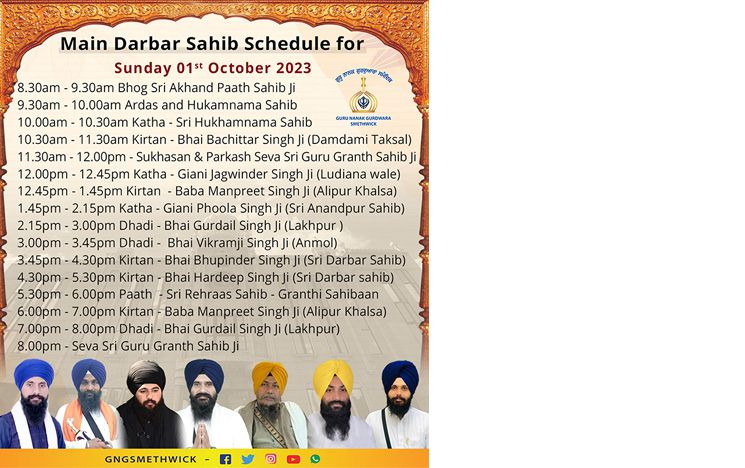
Figure 4: Guru Nanak Gurdwara's weekly programme of kirtan groups from India, Smethwick
The groups are programmed for daily kirtan. An example is Hazuri Ragi Shri Darbar Sahib Amritsar Bhai Kuldeep Singh, who was touring Britain with his jatha in 2023.
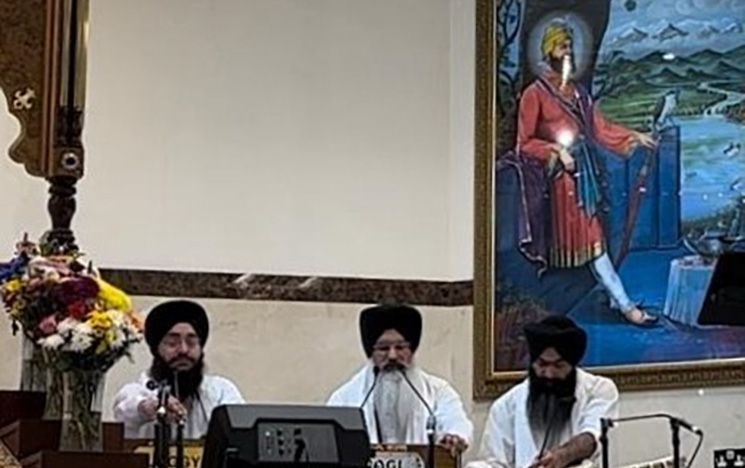
Figure 5. Hazuri Ragi Shri Darbar Sahib Amritsar Bhai Kuldeep Singh performing in Smethwick gurdwara
He is self-taught and rose through the ranks due to a combination of faith and talent. Hazuri Ragi Shri Darbar Sahib Amritsar Bhai Bhupinder Singh also made a tour of British gurdwaras in 2023. He too is self-taught and renowned for his soulful sounds - YouTube.
If arrangements with the gurdwara permits, ragi may also perform in people’s houses in the neighbourhood for the end of ceremonial readings of the Shri Guru Granth Sahib; or family members may arrange for ragi jatha to perform in the gurdwara, on special occasions such as weddings and funerals. Ragi jatha may also come together for non-stop kirtan one after another, samagam, as happened for the Mahaan Gurmat Samagam (Grand Gathering for Guru’s Wisdom) at the Guru Nanak Gurdwara in July 2023.
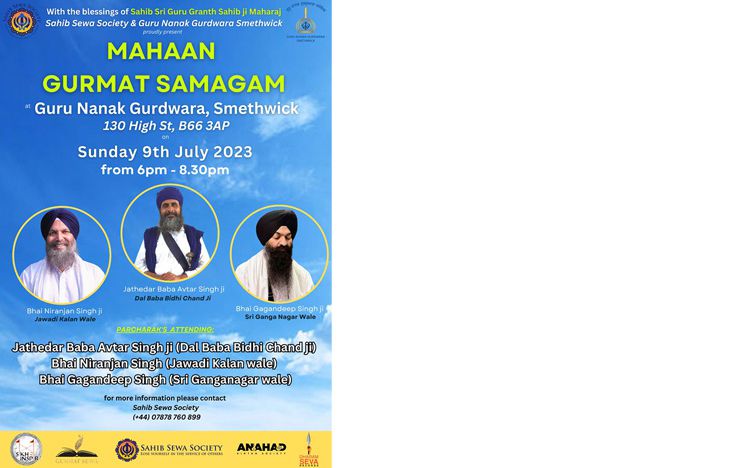
Figure 6: Mahaan Gurmat Samagam (Grand Gathering for Guru’s Wisdom) with kirtan
This was organised by the British-based cultural and educational organisations, Sikh2Inspire, Gurmat Sewa Jatha, Sahib Sewa Society, and Anahad Kirtan Society with the non-for-profit charity, DharamSeva Records, that was set up in 2013 to enhance the distribution and quality of dharmik or religious recordings.
Samagam (a kirtan programme that usually lasts a few days) leads to a medley of musical talent available to British audiences that inspires some to learn kirtan for themselves, and if committed, going to India to learn it directly from the musical masters. Music is effectively the eclipsed medium to the cliché, ‘money makes the world go round.’